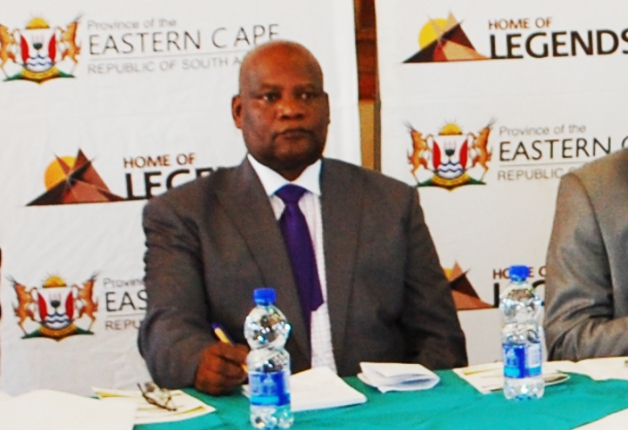Cogta MEC Fikile Xasa says intervention in the Great Kei Local Municipality was done because it had failed to fulfil its executive obligations, including non-compliance with the Municipal Finance Management Act (MFMA) in relation to expenditure management.
In terms of the Act, Municipal Managers (MMs) are expected to take all reasonable steps to ensure that all money owing by the municipality be paid within 30 days of receiving the relevant invoice or statements, unless prescribed otherwise for certain categories of expenditure.
In this regard, said MEC Xasa the Great Kei Local Municipality has failed to pay all money owing to its creditors within 30 days.
He added that the municipality’s monthly salary bill is about R4.3 million. The municipality is only able to collect revenue of R2 million a month, on average. This means that every month there is a shortfall of R2.3 million and it is only on receipt of the Equitable Share transfers that the accumulated shortfall is paid.
“The municipality is unable to fund its operations and currently owes creditors approximately R28mn, of which an amount of R22mn is more than 90 days old that is owed to creditors. The municipality is unable to fund its daily operations,” said Xasa.
He added that Great Kei municipality currently owes among other creditors the following:
- Staff pensions R1.1m.
- South African Revenue Services R7m excluding penalties.
- Municipal Standard Chart of Account (MSCOA which is a financial accounting system) implementation to Sebata R5.8m.
- ESKOM invoices as at March and April 2018 amounted to R1.2m.
Xasa said under the circumstances Cogta, through the Provincial Executive Council intervention, had assumed responsibilities as follows:
- Corporate Services, including recruitment process, appointment of the MM. The Municipal Council retains the power to make final approval only on the appointment of the MM.
- Financial Management and Administration, in particular credit control and debt collection, supply chain management and development of Financial Recovery Plan.
Xasa said so far, the intervention has managed to make available R10 million of the Equitable Share from the National Treasury due to Great Kei to pay for salaries.
“We call on the political principals and officials to work with us to sustain the intervention once we have pulled out. We need to refocus and a mindset change to realise the common objectives of co-operative governance,” said Xasa.
Municipalities are responsible for the provision of basic services such as water, electricity, refuse removal and municipal infrastructure said Xasa. He said his department would continue to exercise its authority within the regulatory framework in monitoring compliance and the fulfilment of executive authority by all municipalities.
“Our interventions happen when the constitutional and statutory obligations are not fulfilled by municipalities,” said Xasa.
Great Kei Local Municipality is under the jurisdiction of the Amathole District Municipality. Its mayor is Loyiso Tshetsa. Great Kei’s western border begins around 20km east of East London, at the Kwelera River and and on the east at Kei Mouth. The biggest settlement in the northern part of Great Kei is Komga.


